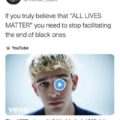
Gregg Michael Gillis, who goes by the stage name Girl Talk, is a renowned American DJ who’s most well known for his works in music sampling and mashups. He samples from numerous different genres and artists of all ages and backgrounds, many times in the same track, transforming them into works completely different from the original music. His growth in popularity was in part because of his dynamic shows in which he would change the music as he performed, creating a connection with his listeners as they all hear his new variations at the same time.
The problem that some have with Girl Talk’s music is that he doesn’t get permission from the artists or the copyright holders to use samples from their music, he simply just uses them. This being said, Girl Talk has a very wide fan base that spans from his rise to popularity in the early 2000’s to even today. This spawns the debate of whether his music could truly be rendered as a creative piece of work or if it should be considered copyright infringement.
Those that support him claim “free use” in this debate. Free use is the doctrine that is often used as a defense in copyright infringement cases. It is used to claim that the supposed copyright infringement work is actually permitted as to provide wide access to creative works for the public. Girl Talk and his supporters claim that his work is protected by the fair use doctrine as it expresses transformativeness as opposed to imitation. In regards to the questions about the artists not receiving compensation from the samples of their music that he uses, Girl Talk claims that his work is helping the artists as well. Since he samples works from many different genres, he explains that many people learn about different types of artists as he pays homage to them through his works and that he isn’t causing any damage to the potential markets of either the artists or the copyright owners.
Copyright laws have been criticized greatly in the creative field. The original purpose of copyright was to encourage and promote the progress of art. The works were protected for up to 14 years and were then released for the public to use freely, but as the global music industry has grown into a $26.2 billion dollar industry, the priorities of copyright law have changed. As opposed to having the purpose of “stimulating artistic creativity,” the laws now protect the ability for big corporations to profit off of creative artworks for as long as possible. In addition, as Girl Talk mentions in its interview with Billboard in 2020, “You don’t know whether your work falls under fair use or not until you’re taken to court,” and when you are in court, the cost of proving fair use is incredibly high, giving the large corporations the upper hand.
Whether the works of Girl Talk are transformative pieces of art that push the boundaries of copyright laws in the digital age, or whether they are all copyright infringement that should be taken down due to their lack of permission and compensation for the copyright owners, it’s obvious that Girl Talk is proud of his work, as are his fans that applaud his efforts to challenge the notion of originality and the boundaries of traditional music production in the current music industry.








The issue of copyright brings to mind the aspect of our culture which details that we should all receive the “fruits of our labor”. While I understand this principle, and the fact that original artists should be the ones profiting from their work, I can’t help but feel as if the policing of art has gone too far. In particular, I remember when I was younger how people on YouTube would make mashups/remixes with very popular music. There was this one pretty popular remix account that I and many other people loved so much. However, one day he announced he was shutting his account down because YouTube would often take his videos down, no matter how much credit he gave to the original artist. Rather than protecting the artist, it seems as if these sorts of censorships are protecting large-scale corporations, and people who have very little to do with the making of the art itself. People should definitely be paid, but I don’t see why “recycling” art has to be punished so severely and so often.
The use of sampling songs and other artists’ music is a difficult issue to manage. As stated above, many artists do no know if they have violated copyright infringement until they have been taken to court. When DJ’s such as Girl Talk remix recognizable songs, the audience typically understands that the song is not theirs. There is a general consensus that the DJ is putting their own spin on it. The problem is harder when producers and artists create songs and sample melodies or instrumentals or vocals that are less recognizable. Sometimes artists will just release the song with the sample and will later have to take it down. For example, Frank Ocean’s “American Wedding” is a rework of The Eagles’ “Hotel California” who threatened to sue Frank Ocean if he ever performed or released the song commercially. Going back to my original argument, Hotel California is a very recognizable song and from Frank Ocean’s song anyone can tell that is where he drew inspiration but the original artists were still not satisfied. Overall I believe that copyright laws are necessary to preserve creative integrity however I am not sure where that line is when and original piece becomes something else entirely.
I have heard a few of his remixes and it is incredible in my opinion. Although he did make each song separately, the way he makes these songs into something completely different is truly unique. I agree with the fact that Girl Talk, as well as other DJs, actually help the artists get more recognition since those that haven’t heard their songs could possibly be curious to know what song was played, and later look it up and hear it on their free time. Most of the time however, I’d say that whenever we hear a remix of a song or multiple songs, we know the original song(s) and the artist that sings it, if they are that famous (which they most likely will be if used for many to know and enjoy). We don’t however have the idea that the dj or person remixing it wrote the lyrics and made it from scratch, because we know that DJs tend to use other artists music and incorporate their own style to it.